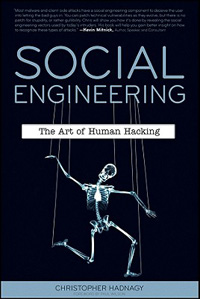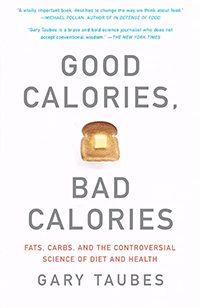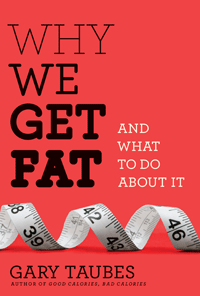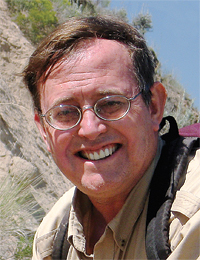In this week’s eSkeptic:
- Skepticality: Social Engineering: The Art of Human Hacking
- feature article: Myths About Fat and What to Do About It
- Mystery Photo: previous photo revealed, plus a new photo
- our next lecture: Catastrophes! Earthquakes, Tsunamis, Tornadoes, and Other Earth-Shattering Disasters (by Dr. Donald Prothero)

The Art of Human Hacking
Skeptics are well versed in the many tools of the trade used by charlatans and hucksters to defraud their victims. Some of these same tools—elicitation, pretexting, influence and manipulation to name a few—are also used by hackers, spies and identity thieves to obtain information illegally.
This week on Skepticality, Swoopy talks with Christopher Hadnagy, author of Social Engineering: The Art of Human Hacking which examines the maneuvers (and the science behind them) used to deceive unsuspecting victims. The book also addresses ways to reduce our own susceptibility to the hackers and security threats in our every day lives.
About this week’s feature article
There is certainly no shortage of diet fads and weight loss myths. The plethora of contradictory information can make it difficult for us to distinguish between sound nutrition science and plain old nonsense. In our second review of the year of Gary Taubes’ latest book Why We Get Fat and What To Do About It (read the first review here), Harriet Hall, M.D. (the Skepdoc) advises against jumping on any bandwagons.
SUBSCRIBE to Skeptic magazine for more great articles like this one.
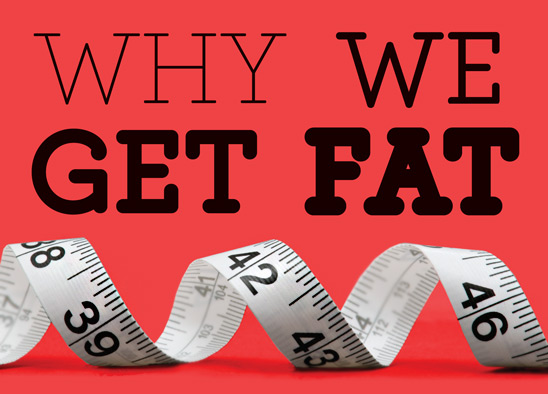
Myths About Fat
and What to Do About It
by Harriet Hall
Journalist Gary Taubes created a stir in 2007 with his impressive but daunting 640-page tome Good Calories, Bad Calories. Now he has written a shorter, more accessible book Why We Get Fat: And What to Do About It to take his message to a wider audience. His basic thesis is that:
- The calories-in/calories-out model is useless.
- Carbohydrates are the cause of obesity and are also important causes of heart disease, type 2 diabetes, cancer, Alzheimer’s, and most of the so-called diseases of civilization.
- A low-fat diet is not healthy.
- A low-carb diet is essential both for weight loss and for health.
- Dieters can satisfy their hunger pangs and eat as much as they want and still lose weight as long as they restrict carbohydrates.
Taubes supports his thesis with data from the scientific literature and with persuasive theoretical arguments about insulin, blood sugar levels, glycemic index, insulin resistance, fat storage, inflammation, the metabolic syndrome, and other details of metabolism. Many readers will come away convinced that all we need to do to eliminate obesity, heart disease and many other diseases is to get people to limit carbohydrates in their diet. I’m not convinced, because I can see some flaws in his reasoning. For example, Taubes says that restricting carbohydrates “leads to weight loss and particularly fat loss, independent of the calories we consume from dietary fat and protein. We know that the laws of physics have nothing to do with it.”
He acknowledges that the laws of physics are unavoidable, then contradicts himself by saying weight loss is independent of the calories consumed. He attacks the calories in/out principle with something of a straw man argument. He is really only saying that using that model hasn’t been very successful in producing weight loss. But no one has ever denied that. He says exercising and reducing total calorie intake do not work; then he goes too far and says they cannot work. Most of us would argue that they can and do; the problem is not with the principle, but with its implementation. Simple physics requires that to lose weight, we must burn more calories than we ingest: that is indisputable. The devil is in the details. It takes a lot of exercise to burn off a few calories, so exercise is not a practical solution; and it has proved very difficult in practice to get people to reduce their calorie intake significantly over long periods of time. Weight loss is simple, but it is not easy; and those of us who rely on the calories in/calories-out principle have never suggested that it was. We don’t just berate obese people for lack of will power. We try to understand why most people find it so difficult to lose weight. Perhaps the more intriguing question is why some people maintain a low weight throughout a long lifetime of varying food intake, including people who eat a lot of carbohydrates.
There are social and cultural influences and practical considerations; but the basic problem is that because of their genetic makeup, some people’s bodies are more efficient at storing calories. In a famine situation, they would be the survivors; in a world where abundant food is available, they are the obese. Taubes is correct when he says, “Those who get fat do so because of the way their fat is regulated.” But they still couldn’t get fat without eating too many calories for their particular metabolism, and if a way can be found to decrease their calorie intake to a level appropriate for their metabolism, they will lose weight.
Diets are just tricks to get people to reduce total calorie intake, and low-carb diets are no exception. A 2003 systematic review in the Journal of the American Medical Association showed that weight loss on low-carb diets was principally associated with decreased caloric intake and increased diet duration, but not with reduced carbohydrate content.
Taubes says “In a world without carbohydrate- rich diets, obesity would be a rare condition.” That’s undoubtedly true. But is it the carbs or the calories? The two are confusingly intertwined. Carbohydrate- rich diets are high calorie diets. Cutting calories usually involves cutting carbohydrates, and cutting carbs usually results in cutting calories. On any weight loss diet, dieters avoid “empty calories” and try to pick foods that will satisfy their hunger better and for longer.
The diet Taubes recommends allows unlimited amounts of meat, fish, poultry, green vegetables and eggs; limited amounts of cheese, cream, mayonnaise, olives, avocado, lemon, soy sauce and pickles; and no carbohydrates except for a few nutritionally dense, fiber rich vegetables. A sample menu:
- Breakfast: bacon and eggs
- Lunch: grilled chicken and green salad
- Snack: pepperoni slices and a cheese stick
- Dinner: Burger or steak, green salad, green vegetables
Taubes advises that we protect ourselves from salt deficiency by drinking two cups of bouillon every day, which would not sit well with those who advise limiting salt intake to prevent high blood pressure. He recommends limiting coffee, but this doesn’t appear to be based on good evidence; in fact, a recent study showed that coffee improves insulin sensitivity, which is one of the aims of the low-carb diet.
Taubes admits that the diet can cause side effects, which he attributes to: (1) eating too much protein and too little fat, (2) attempting strenuous exercise without taking the time to adapt to the diet, and (3) most importantly, the body’s failure to compensate for the lower insulin levels. He admits that it is a real challenge to overcome carbohydrate cravings, which amount to an addiction. He admits that high protein diets can be toxic. He also admits that people who restrict carbohydrates tend to eat less, and he says their energy expenditure increases. Wait! This sounds like support for the very calories-in/out principle that Taubes rejects.
Taubes has an “out” to excuse failures— some people will only lose weight on a zero carbohydrate diet and “even this may not be sufficient to eliminate all our accumulated fat, or even most of it.” He says the high fat/cardiovascular disease hypothesis led the American public to replace fat calories with carbohydrate calories, thus causing the obesity epidemic. It seems to me that when we reduce carbohydrate intake, we need to make sure the carbohydrate calories are not being replaced by a worse option. Low carb diets cause ketosis; ketogenic diets have been used to treat epilepsy in children, but they can cause harmful side effects and they raise cholesterol levels by 30%. Meats, especially processed meats, have been associated with an increased risk of heart disease and cancer.
In The China Study T.Colin Campbell argues that all animal products should be eliminated from our diet because it is animal products (not carbohydrates) that cause heart disease, cancer, and a host of other diseases. If he and Taubes staged a formal debate or served together on a committee to develop diet recommendations, there might be some spectacular fireworks. In the Middle Ages disputes were sometimes settled by appointing two champions to duke it out. Interesting idea. No, better stick to science to settle these differences of opinion, even though it may take a long time for a consensus to be reached and there will always be dissenters.
Taubes thinks that low-carb diets reduce cardiovascular risk and that low-fat diets don’t. He says a 2001 Cochrane review concluded that there is still only limited and inconclusive evidence of the effects of modifying total, saturated, monounsaturated, or polyunsaturated fats on cardiovascular morbidity and mortality. This is misleading: it is a negatively slanted paraphrase of what was actually a positive conclusion:
The findings are suggestive of a small but potentially important reduction in cardiovascular risk in trials longer than two years. Lifestyle advice to all those at high risk of cardiovascular disease (especially where statins are unavailable or rationed), and to lower risk population groups, should continue to include permanent reduction of dietary saturated fat and partial replacement by unsaturates.
Taubes admits that studies show that low-carb diets tend to raise the level of “bad” LDL cholesterol, but he thinks that this is more than compensated for by rises in “good” HDL cholesterol and by lower levels of triglycerides. Published evidence suggests that he may be wrong. In a 2010 study, adherence to a Mediterranean- like dietary pattern reduced mortality but a carbohydrate-restricted diet appeared to increase mortality in elderly Swedish men. Another 2010 study showed that low-carb diets based on animal sources were associated with higher all-cause mortality in both men and women, whereas a vegetable-based low carbohydrate diet was associated with lower all-cause and cardiovascular disease mortality rates.
What about weight loss itself? If Taubes’ thesis is correct, we would expect studies to consistently show a strong superiority of low-carb diets for weight loss. A 2010 study showed no difference in weight loss between low fat and low carb diets over a two year period, although low-carb dieters had more favorable changes in lipids. A 2009 study in the New England Journal of Medicine compared weight loss from diets with different compositions of fat, protein and carbohydrates and found that low-carb diets were not superior, and that clinically meaningful weight loss results from weight loss diets “regardless of which macronutrients they emphasize.” An accompanying editorial suggests that behavioral factors are more important to weight loss than the type of diet, and that a total environmental approach is needed.
Taubes says right off the bat that “these competing ideas should be tested” and admits that such testing has not been done; but since obesity is such a serious problem, he says it is urgent that we institute his diet recommendations now, without waiting for the evidence. Yet he criticizes the low-fat diet campaign for doing just that: we went beyond the evidence and instituted society-wide changes based on inadequate data, with what Taubes considers to be disastrous results. How can he be so certain we should go beyond the evidence this time?
Has Taubes destroyed the old low fat myth only to create his own new low carb myth? Rather than jumping on the low-carb bandwagon before his ideas are properly tested, the precautionary principle suggests that it might be more reasonable to follow a moderate diet like the Mediterranean diet (or to follow Michael Pollan’s stunningly simple advice to “Eat food. Not too much. Mostly plants.”), to limit “empty calories” from simple carbohydrates like sugar, to eat a variety of vegetables and fruits, to choose low calorie density foods that are more filling, to limit meat intake, to limit salt, and to keep looking for behavioral and environmental ways to change our calories in/calories-out balance.![]()
Skeptical perspectives on food, weight loss and fads…
-
 The Gospel of Food
The Gospel of Food
by Dr. Barry Glasner (DVD $23.95)
-
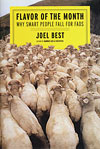 Flavor of the Month: Why Smart People Fall for Fads
Flavor of the Month: Why Smart People Fall for Fads
by Joel Best (hardback $19.95)

Solution to last week’s Mystery Photo
The Mystery Photo from April 27th is the Capitoline Wolf, in Rome, with figures of infants Romulus and Remus (legendary founders of Rome).
This week’s Mystery Photo
This is quite possibly the most famous patch of grass on the planet. Where is it? We will reveal the answer to this week’s Mystery Photo in next week’s eSkeptic.
Our Next Lecture
Catastrophes! Earthquakes, Tsunamis, Tornadoes, and Other Earth-Shattering Disasters
with Dr. Donald Prothero
Sunday, May 15, 2011 at 2 pm
DEVASTATING NATURAL DISASTERS HAVE PROFOUNDLY SHAPED HUMAN HISTORY, leaving us with a respect for the mighty power of the earth — and a humbling view of our future. Paleontologist and geologist Donald R. Prothero tells the harrowing human stories behind these catastrophic events:
- The New Madrid, Missouri, earthquakes of 1811–1812 that caused
church bells to ring in Boston - The 2004 Indian Ocean tsunami that killed more than 230,000 people
- The massive volcanic eruptions of Krakatau, Mount Tambora, Mount Vesuvius, Mount St. Helens, and Nevado del Ruiz.
His clear explanations of the forces that caused these disasters accompany gut-wrenching accounts of terrifying human experiences and a staggering loss of life. Floods that wash out whole regions, earthquakes that level a single country, hurricanes that destroy everything in their path — all remind us of how little control we have over the natural world. Order the book on which this lecture is based from Amazon.com.
Ticket information
Tickets are first come first served at the door. Seating is limited. $8 for Skeptics Society members and the JPL/Caltech community, $10 for nonmembers. Your admission fee is a donation that pays for our lecture expenses.
Can’t Make it to Our Lectures?
Get them on DVD!
Many of you would love to be able to make it to our lectures at Caltech, but cannot. And, many of you may not realize that we record almost all of our lectures and sell them on CD and DVD through our online store.


